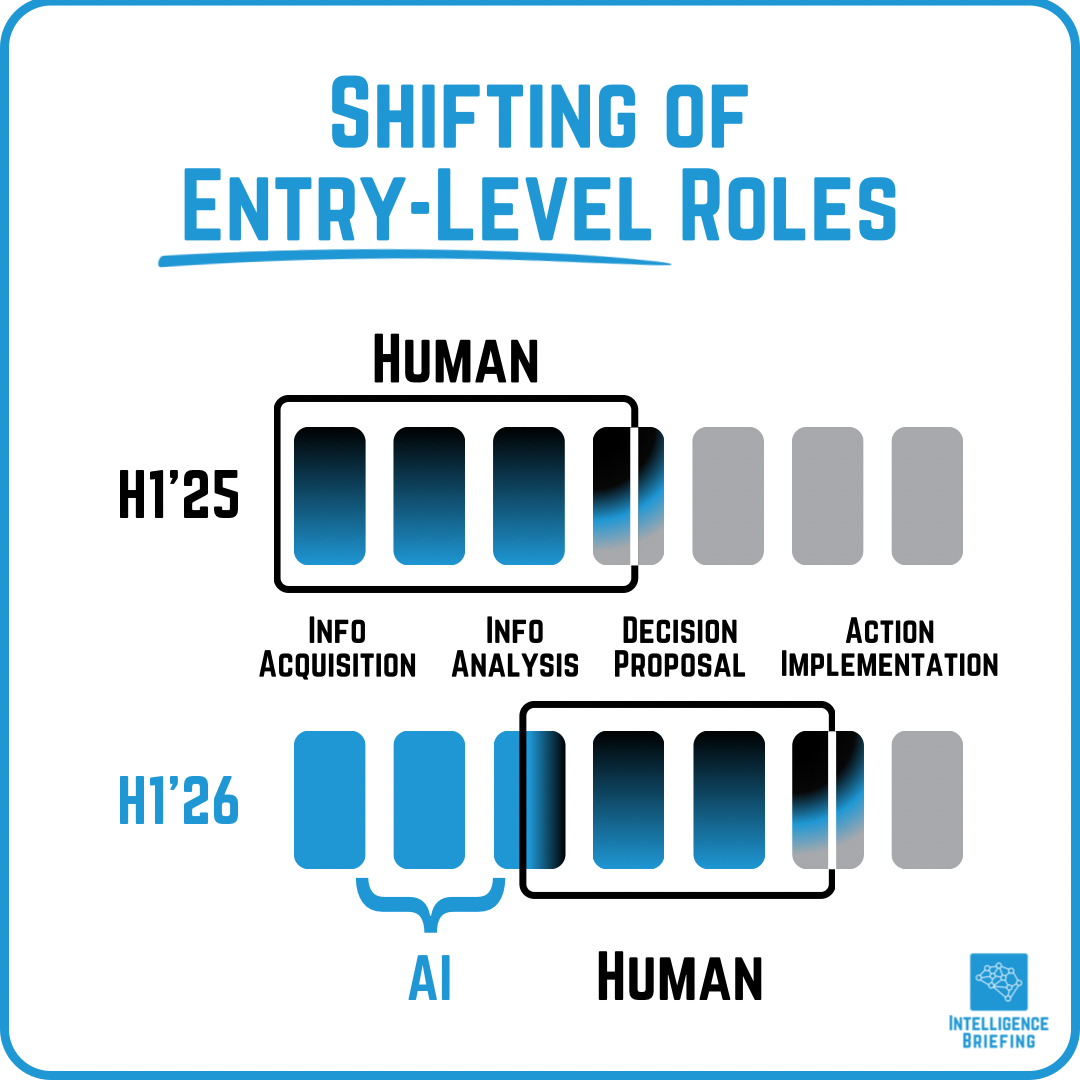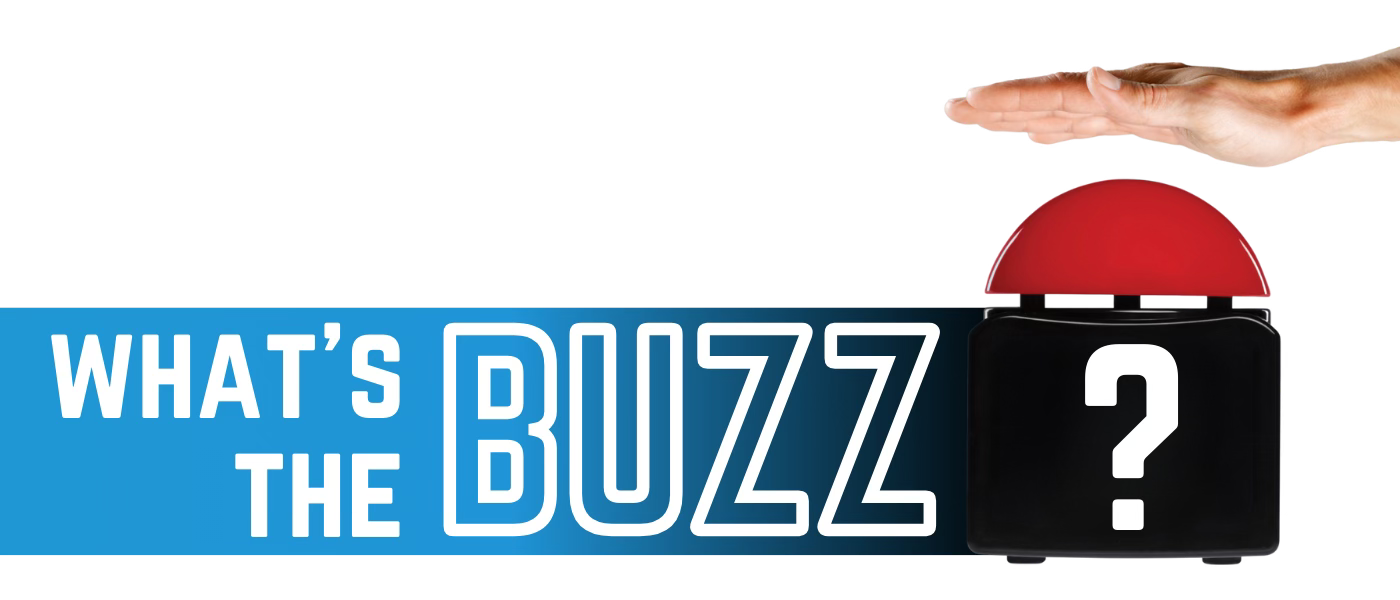What Will AI Bring For Entry-Level Roles?
A Perspective on Job Evolution vs. Job Elimination and How to Prepare
One of my students asked a few weeks ago: “I’m about to graduate. Will I still find a job—because of AI?” That was at the end of our hands-on lab on Generative AI and how to use different assistants and apps to prepare students for the workplace they are about to enter.
In my on-the-spot answer, I shared that jobs and roles are likely going to evolve and that it’s important we all learn how to work with AI tools. But as the spring semester drew to a close, I started thinking more about this topic and started writing down my thoughts.
I shared my thoughts in an interview a few days ago and was going to post about it here shortly. Given the recent comments by Dario Amodei, CEO of Anthropic, it feels timely to publish this article today.
Students’ Increasing Use of AI
Recently, media coverage has focused on students using Generative AI assistants to generate essays and other exam submissions and then passing them off as their own. From my own experience as an adjunct lecturer and a small sample, the use of AI has increased over the past 6 months. (This is similar to my observation among professionals.)
Depending on the type of exam, they can be passed more easily with AI. So, common questions are: What do students learn and retain if they fake their knowledge and proficiency with AI? And what do they actually gain besides a degree? I believe we need to teach and evaluate human capabilities like thought processes, critical thinking, and reasoning when anyone can generate an output in seconds.
The Wall Street Journal reported about Moderna’s recent combination of HR and IT departments under the CHRO (driven by AI-anticipated change) and the replacement of junior HR analysts with AI. But Moderna might just be the first company to eliminate entry-level roles and automate them with AI. This leads to the question of whether entry-level roles are still needed and how recent graduates can land an entry-level role. But, does this shift really mean that entry-level roles will disappear completely?
The Sliding Skill Window
Dario Amodei, CEO of Anthropic, rang the alarm bell that AI will replace half of all entry-level roles and that it might lead to an increase of 10-20% in unemployment within the next five years.
Although AI innovation is happening at a seemingly ever-increasing pace, I see a common misconception when pondering whether all entry-level roles will be eliminated. It is assuming that the scope of entry-level roles remains static while the majority of these tasks will be delegated to AI (agents).
Instead, I believe we will see a shift in what “entry-level” means as well as what “professional” experience entails (and so on as we look at more senior roles). I visualize this as an upward shift of the tasks that (a) will be deemed to be “entry-level,” (b) will be done by humans, and (c) the point in time at which this will occur.
This means that expectations towards entry-level applicants will change as well. Recent graduates will be able to create work products and quality with the help of AI that a professional with a few years of experience delivers today without AI. Likewise, professionals can perform at an expert level, and so on; I explored this topic in a previous article.
Similar to a sliding window, the scope of the role will shift towards combining domain expertise plus how to use AI to create good output. This shift and the accompanying expectations towards entry-level roles will consequentially also apply to professionals and so on.
Contraction of Roles and Tasks
Companies like Klarna, Shopify, and Duolingo are embracing an AI-first mindset, although some CEOs have walked back or softened their new mantras after receiving public backlash. Either way, Moderna’s case nicely illustrates that this shift toward AI is already happening.
It is highly unlikely that all entry-level roles will disappear at the same time. It will be gradual, company after company and sector by sector. What I expect we will see much sooner is a temporary gap between the current skills and what will be required to succeed.
That’s why learning how to use AI is so critical. Immediate term, we will all need to do a bit of learning and experimentation ourselves—students included. But using ChatGPT, Claude, etc. needs to quickly go beyond writing essays and generic-sounding content.
This is not about prompting. This is tapping into the potential of a brainstorming buddy, exploring ideas, validating findings, role-playing, delegating tasks, using multiple AI tools, etc. Additionally, early-in-career individuals will still need 100,000 hours to be truly proficient in a domain and perform at an expert level. But AI helps them get there faster.
Lastly, there is always the realization that entire roles can only partially be automated and humans are still needed. While companies are slowing down hiring entry-level roles at the moment, the same companies might realize it is a contraction of roles rather than an elimination.
Students and recent graduates need to build their human network and acquire domain knowledge and on-the-job experience—which in many cases can be a catch 22.
Conclusion
The use of AI tools among students has increased significantly. But the technology that helps generate essays and exam answers is the one that also makes it harder to land an entry-level role.
While organizations are slowing down hiring of entry-level roles or eliminating these roles altogether, the scope of these roles will likely shift towards higher levels of proficiency and complexity over time. This will also create a ripple effect for more senior roles who will be expected to increase at higher levels levels of proficiency with the help of AI as well.
In the meantime, students and recent graduates will need to gain the practical experience to discern when and how to use AI in the conext of their role, businesses will temporarily need to step in and fill the gap, while education evolves skill-building and knowledge tests.
Ready to accelerate your organization’s AI-readiness with practical upskilling? Reach out for a free consultation!
Explore related articles
Become an AI Leader
Join my bi-weekly live stream and podcast for leaders and hands-on practitioners. Each episode features a different guest who shares their AI journey and actionable insights. Learn from your peers how you can lead artificial intelligence, agentic AI, generative AI & automation in business with confidence.
Join us live
June 17 - Kathleen Walch (Director of AI Enablement & Community at Product Management Institute) will share the six steps to success for new AI leaders.
July 01 - John Thompson (AI Leader, Author, and Innovator) will discuss which skills are key when working with AI agents.
July 15 - Jon Reed (Industry Analyst & Co-Founder of diginomica) and I will discuss the state of Enterprise AI and Agents as we head into the summer.
July 29 - Steve Wilson (Project Leader at OWASP Foundation and Chief Product Officer at Exabeam) will share how organizations can secure their AI agent deployments. [More details to follow…]
Watch the latest episodes or listen to the podcast
Follow me on LinkedIn for daily posts about how you can lead AI in business with confidence. Activate notifications (🔔) and never miss an update.
Together, let’s turn hype into outcome. 👍🏻
—Andreas










It feels like what used to be an entry point is no longer just a threshold. It’s more like diving straight into deep water.Do you think companies are truly ready to teach newcomers how to swim in the AI current?